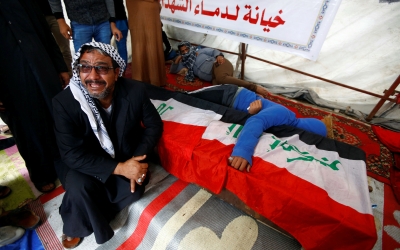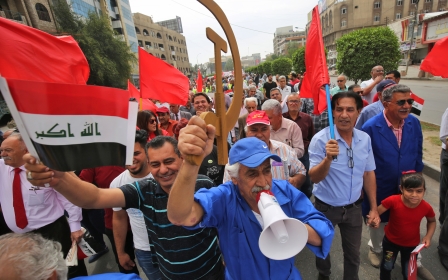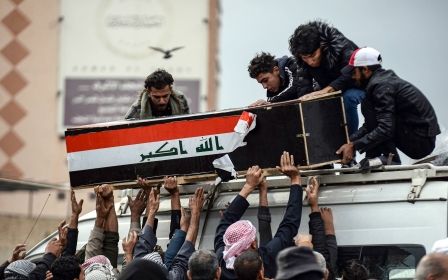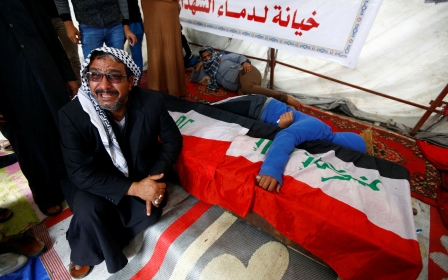Mosul solidarity: Northern students gather for protesters slain in Iraq's south
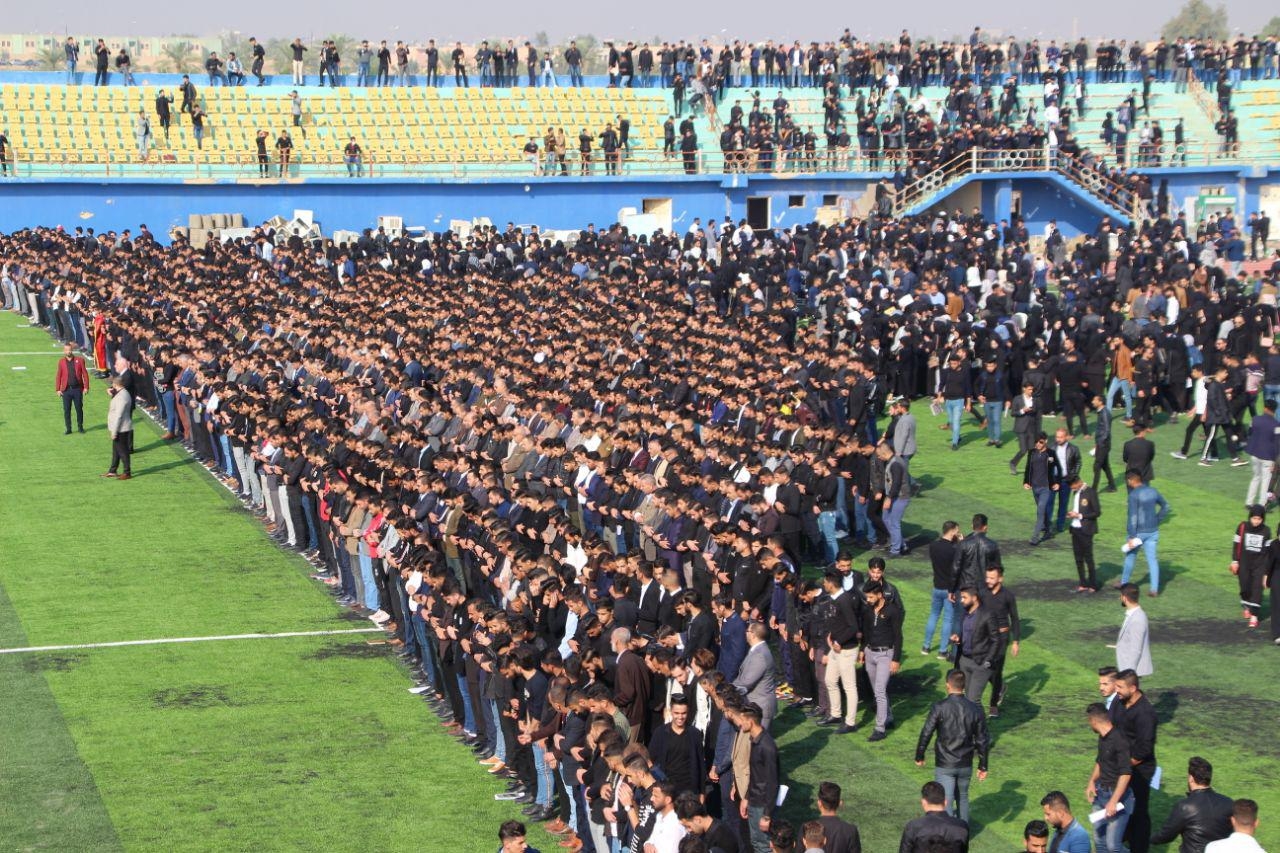
Students in the northern city of Mosul marked a moment of silence on Sunday in remembrance of protesters killed by security forces in the southern cities of Najaf and Nasiriyah.
Dozens have been shot dead by security forces in the latest escalation of violence across Iraq since protesters torched the Iranian consulate in Najaf late on Wednesday. Students and teachers from Mosul schools and universities dressed in black and gathered to read from the Quran, mourning at least 420 people killed since protests against corruption, unemployment and poor services broke out on 1 October.
Although some Mosul residents have travelled to Baghdad to join the protests there, most have been fearful of taking to the streets, even if they sympathise with the demonstrations in the south.
Mosul was until 2017 the heart of the Islamic State (IS) group in Iraq, and its mostly Sunni residents fear that they will find themselves tarred as IS supporters if they take part in protests against the Shia-dominated government.
Those who have supported the demonstrations, generally online, have faced harassment by Iraqi security forces and dozens of them have been arrested.
The gathering on Sunday marks one of the largest public displays of support for the protests by Sunnis thus far.
“As a student from Mosul city, I would like to say that we all stand with our brothers and sisters in the south, we grieve for those lost, and we will continue to stand with Iraq’s protests against the corrupt government until victory is gained," said Atheer Nazar Saadallah, 24, a medical student at Mosul University
“Today, I felt great feelings of nationality and connection to my country. I felt that all parts of society of Iraq are unified for freedom and against corruption. I felt all the people of Iraq with all their different backgrounds, religions, thoughts and beliefs come together for one word - freedom.”
Many Mosul students told MEE that remembering those who have died was the least they could do to express their support for the protests, as they were not able to practice their constitutional right to demonstrate.
Mustafa al-Kattan, a Mosul secondary school student, said: “I and my colleagues decided to stand with the people of Iraq's south who are facing the lethal force of the security forces, who have killed numbers of peaceful protesters. We refuse to enter class today before we show our solidarity with Nasiriyah and Najaf.
“We prepared the flags and gathered in the centre of school as a sign of sympathy. Today and tomorrow, we will support the youth revolution across Iraq,” he added.
On Sunday, parliament accepted the resignation of Prime Minister Adel Abdul Mahdi, who announced his resignation on Friday following an intervention from Grand Ayatollah Ali Sistani, the country's top Shia cleric.
Since 2011, anti-government protests have erupted on a regular basis, but this is the first time they have succeeded in forcing the resignation of the prime minister.
In addition, Iraq’s Supreme Judicial Council has issued an arrest warrant for Lieutenant General Jameel al-Shammari, former military chief in Dhi Qar province, in the wake of the violence meted out against protesters.
Students and teachers in Sunni-majority Anbar and Salahuddin provinces also organised moments of silence to mourn those killed in Najaf and Nasiriyah.
Students in Anbar said the national mourning taking place across Iraq confirmed the solidarity of Sunni-majority areas standing with the mostly Shia southern provinces.
Middle East Eye propose une couverture et une analyse indépendantes et incomparables du Moyen-Orient, de l’Afrique du Nord et d’autres régions du monde. Pour en savoir plus sur la reprise de ce contenu et les frais qui s’appliquent, veuillez remplir ce formulaire [en anglais]. Pour en savoir plus sur MEE, cliquez ici [en anglais].


